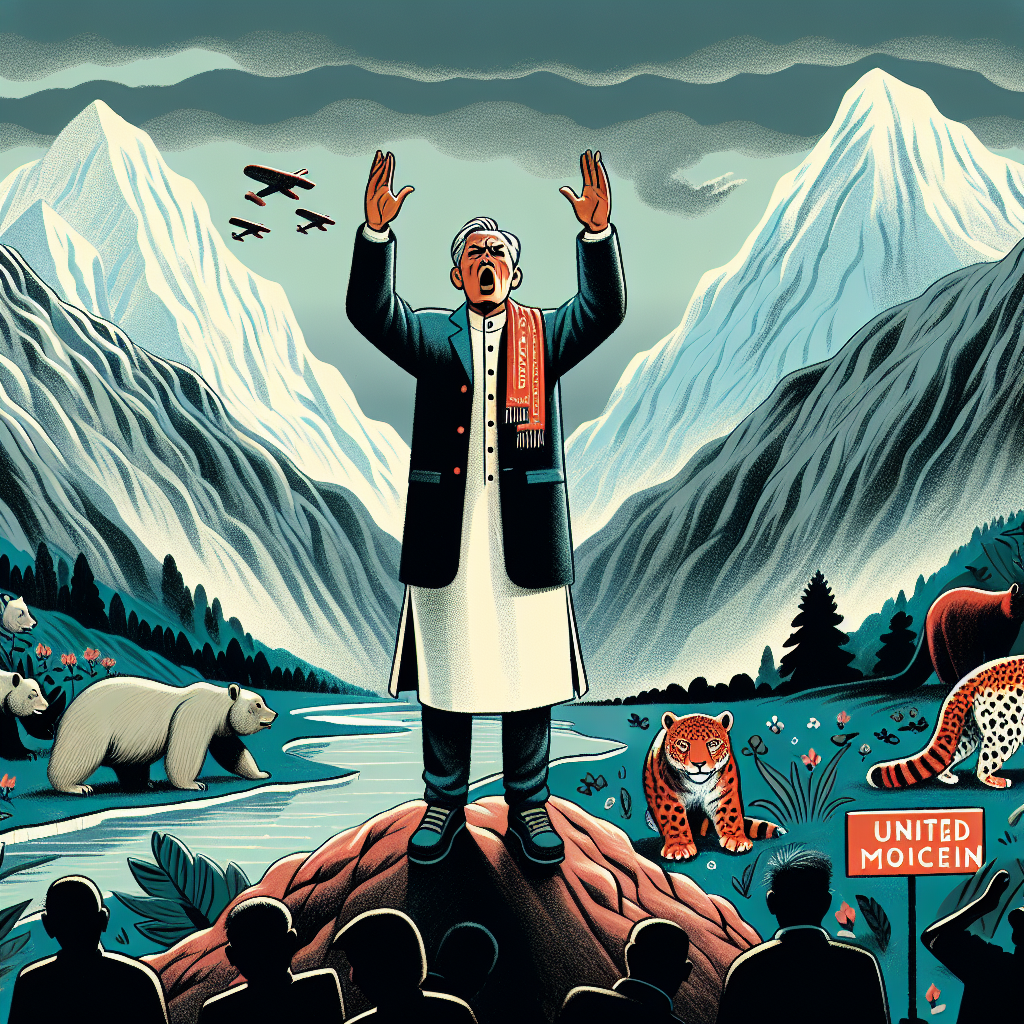Unified Mountain Voice: A Call to Combat Climate Change in the Himalayas
Prime Minister Prachanda emphasizes the need for a unified mountain voice to tackle climate change. At the International Expert Dialogue on Mountain, People, and Climate in Kathmandu, he outlined Nepal's zero greenhouse gas emissions goal for 2045 and stressed cooperation among Himalayan nations.

- Country:
- Nepal
Prime Minister Pushpa Kamal Dahal 'Prachanda' on Wednesday said that a ''unified mountain voice'' is urgently needed to address the growing concern about the effects of climate change.
Inaugurating the "International Expert Dialogue on Mountain, People and Climate" in Kathmandu on Wednesday Prime Minister Prachanda said that "Nepal is fully committed to reducing climate change impacts and has set a goal to achieve zero greenhouse gas emissions by 2045, five years ahead of the global target.
"Since countries in the Mountain region are disproportionately burdened by the impacts of global warming, the serious effects seen in the denizens of mountainous countries due to climate change needs to be urgently addressed," he said.
He made these remarks while addressing the two-day international dialogue organised by the Ministry of Forest and Environment, Nepal which attracted more than 300 participants, including senior government officials, climate experts and other stakeholders in Kathmandu's Chandragiri Hill.
''I firmly believe that a unified mountain voice is urgently needed to address the growing concern about the effects of climate change on mountain communities and the ecosystem services they provide,'' he said while addressing the Global Dialogue on Mountains, People and Climate here on Wednesday.
"As a measure to combat climate change impacts, besides utilising our immense potential of hydro-power to secure clean energy we are also protecting 45 per cent of the land area of the forest," he pointed out.
Prime Minister Prachanda has called all stakeholders to prioritise the most vulnerable women, youth, children, people with disabilities, indigenous tribes and local communities living in the mountains while formulating climate-related policies and programmes.
Meanwhile, stakeholders have expressed their serious concerns over the burgeoning adverse effects of climate change on the Himalayas and called for urgent steps to minimise the same.
Calling the attention of the international community to the effects of climate change on the Himalayas, they have underscored the need to reduce the impacts of climate change on the Himalayas.
Chief Secretary of the Government of Nepal, Dr Baikuntha Aryal, said that due to climate change, the snow and glaciers in the mountains are melting fast, and the snow-capped mountains are changing into bare rocks, hence all should be aware of its adverse effects.
Keynote speaker Dr Govinda Prasad Sharma, Secretary at the Ministry of Forests and Environment, said that the people in the mountainous region are at risk due to climate change.
"Problems such as forest fires, melting snow, glacial lake outburst floods, and rising sea levels are increasing due to global temperature rise,'' he pointed out.
Hanna Singer Hamdy, the Resident Coordinator of the United Nations in Nepal, underscored the need for cooperation and collaboration among the countries in the Himalayan region to minimise the impacts of climate change and to save the people of the Himalayas.
Chair of the UN Subsidiary Body for Scientific and Technological Advice (SBSTA), Harry Vireau, said that disasters such as floods and landslides are occurring due to the effects of climate change, and underscored that solutions to the effects of climate change should be found together.
Yonten Phuntso, Minister for Agriculture and Livestock, Bhutan and Saber Hossain Chowdhary and Minister for Environment and Forest, Bangladesh expressed the view that countries in the region need to join together to face the challenges of climate change, which has threatened the life and livelihood of the people of mountain and downstream regions.
The programme witnessed the participation of more than 60 foreign delegates including high government officials and experts from 22 countries including Bangladesh, Bhutan, India, the Maldives, the USA and Germany.
The recommendations of the two-day programme will be presented to the expert dialogue on mountains and climate change to be organized by the Subsidiary Body for Scientists and Technological Advice (SBSTA) at the 60th session of the SBSTA on June 5, 2024, in Bonn, Germany.
(This story has not been edited by Devdiscourse staff and is auto-generated from a syndicated feed.)










